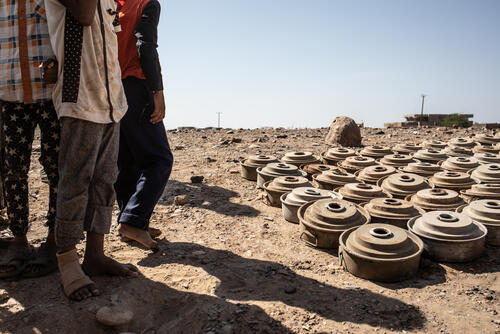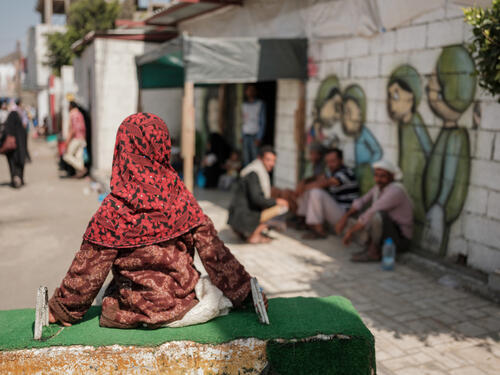- Team investigating the bombing of MSF cholera treatment centre made several false and contradictory claims, shifting blame towards us.
- We demand that the results of the investigation be reviewed and false allegations against us be withdrawn.
- MSF facilities have been hit five times by coalition airstrikes since March 2015.
- With only half the health facilities in Yemen fully functional and more than 11 million people in acute need, access to our facilities is crucial.
Médecins Sans Frontières (MSF) is dismayed by several findings of the team appointed by the Saudi and Emirati-led Coalition (SELC) to investigate the bombing of an MSF cholera treatment centre (CTC) in Abs, Yemen, on 11 June 2018. We demand that the results of the investigation be reviewed and false allegations against MSF be withdrawn.
In a press conference held without notice on 16 January 2019, the SELC-appointed platform for investigating such incidents, the Joint Incidents Assessment Team (JIAT), made various unacceptable and contradictory claims that portray MSF as responsible for, rather than a victim of, the bombing.
While the report recognises that the SELC was partly responsible for the bombing, it fails to shed full light on – and attribute clear responsibilities for – yet another attack on humanitarian and medical work in Yemen. Instead, the report seeks to shift responsibility for the attack away from the SELC, claiming that MSF did not take the appropriate measures to prevent the bombing.
The report claims, for example, that MSF failed to display a distinctive emblem on the facility and did not explicitly request that the facility be placed on a no-strike list. In fact, the compound containing the CTC had three distinctive logos displayed, while MSF shared its location at least 12 times in writing with the correct coalition authorities.
It is the sole responsibility of armed parties to the conflict to proactively take all necessary measures to ensure that protected facilities are not attacked.Teresa Sancristoval, operations director for MSF
“Under international humanitarian law, medical facilities are protected and may not be lawfully targeted even if they are not marked, or if the geographical locations have not been shared with warring parties,” says Teresa Sancristoval, operations director for MSF. “It is the sole responsibility of armed parties to the conflict to proactively take all necessary measures to ensure that protected facilities are not attacked. The onus cannot be on civilians and medical staff.”
While no staff or patients were killed in the attack, damage to the newly constructed centre rendered the CTC non-functional, and incapable of receiving patients from among the population of more than million people that MSF serves in the area.
MSF facilities have now been hit five times by coalition airstrikes since March 2015. With only half of health facilities in Yemen fully functional, more than 11 million people in acute needAccording to the United Nations Office for the Coordination of Humanitarian Affairs, and outbreaks of cholera and other easily preventable diseases occurring regularly, access to MSF’s medical facilities is crucial for the civilian population.






